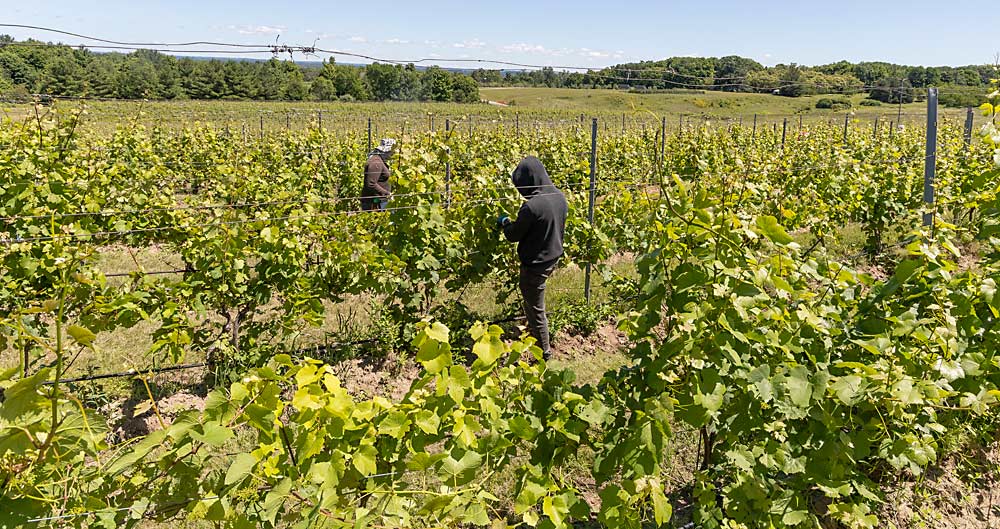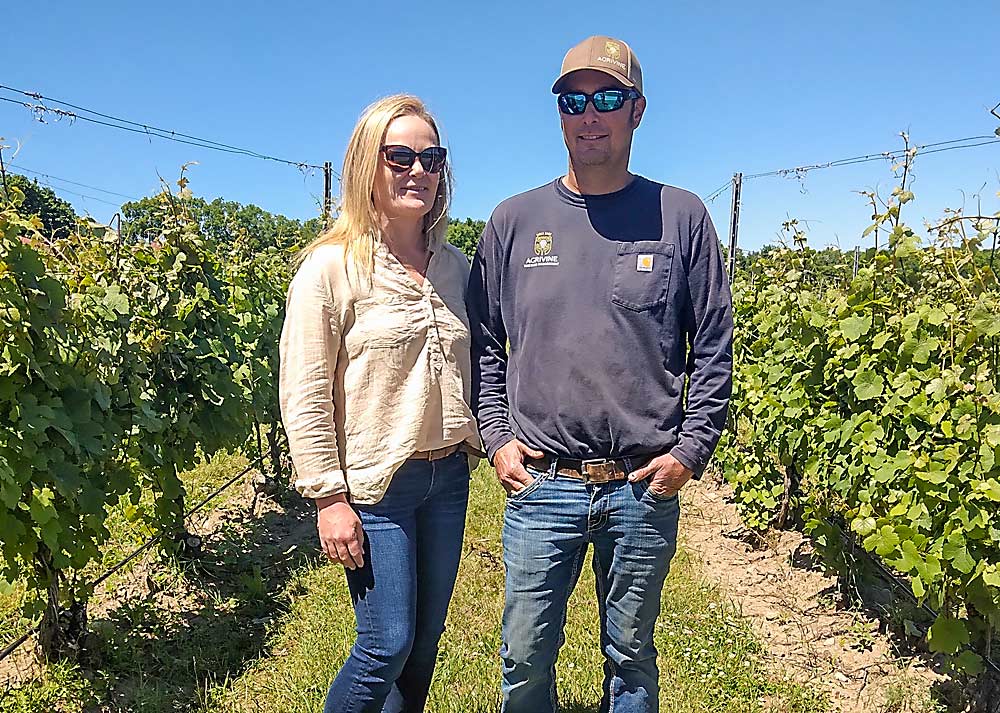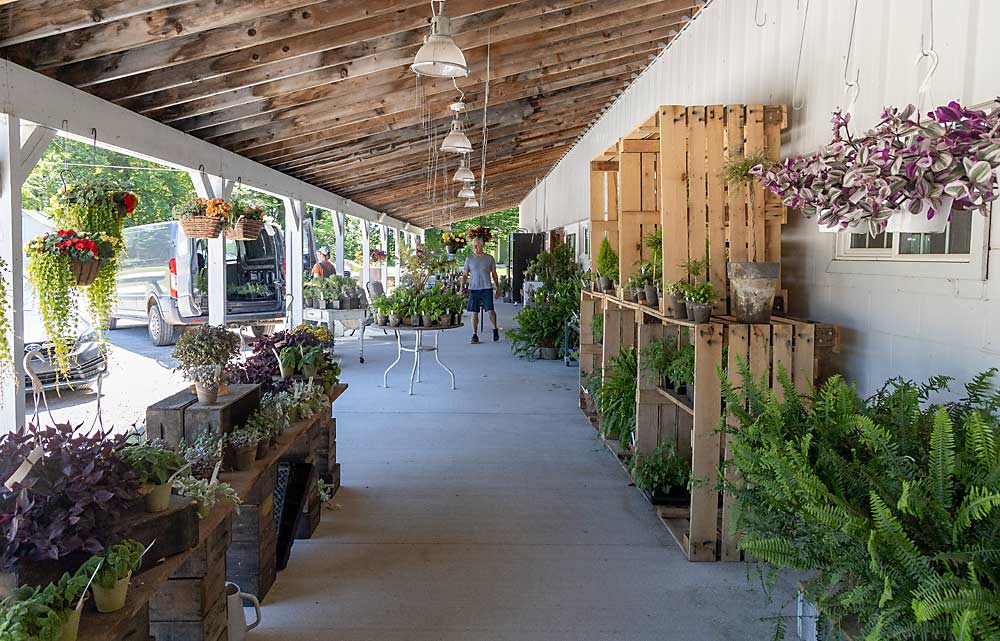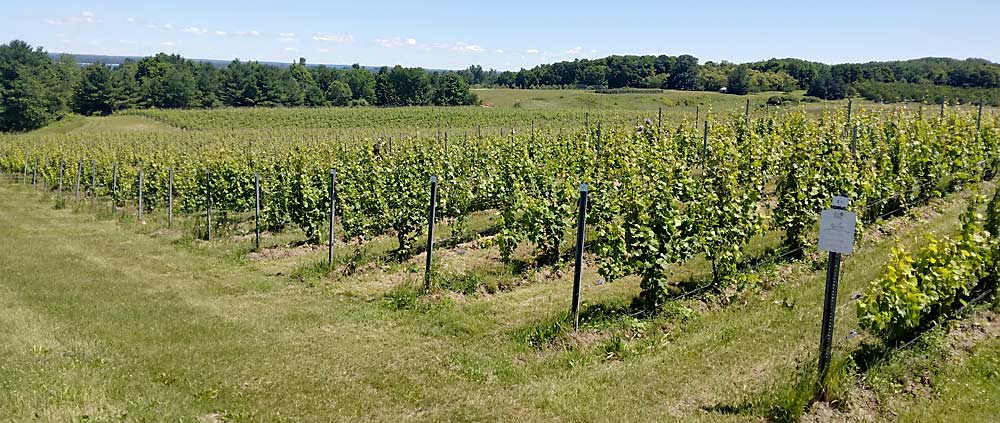—by Matt Milkovich

Northwest Michigan’s Old Mission Peninsula, long known for its cherry orchards, has grown into a tourism and wine destination in the past few decades, and many of its cherry trees have been pulled out and replaced with grapevines.
Of course, the more vines planted, the greater the need for vineyard management. Jen and Ben Bramer saw such a need 16 years ago and stepped in to fill the gap. Their vineyard management company, Agrivine, now manages nearly half the grapes on the peninsula and provides H-2A labor for wineries that would be hard-pressed to afford it on their own.
“This industry would be in deep trouble if they weren’t around,” said Bryan Ulbrich, owner and winemaker at Left Foot Charley, a Traverse City winery. “They’re a fundamental part of what makes Northern Michigan wines great. I can’t imagine the industry without them, quite frankly.”

Old Mission Peninsula extends north of Traverse City into Grand Traverse Bay, part of Lake Michigan. Surrounded by water, the skinny peninsula — about 17 miles long and 3 miles wide at its widest point — is a few degrees warmer on average than nearby fruit-growing regions. Most of the grapes grown on Old Mission, which has its own American Viticultural Area designation, are Vitis vinifera varieties.
The Bramers started Agrivine in 2008. They now manage nearly 350 vineyard acres on the peninsula, with help from six year-round employees and about two dozen seasonal H-2A workers, whom they house and transport. The federal guest-worker program has given them a reliable workforce since they started using it in 2018, but like other H-2A employers, the Bramers aren’t sure how long they can sustain its rising costs, Jen said.
Ben Bramer grew up doing farm work on Old Mission and never lost his drive to be a farmer. Jen, whom he met when they both worked at a farm management company, shared his passion for growing plants. They also own a farm market, Local Yokels Farm, and grow small acreages of strawberries, raspberries, blueberries, table grapes and vegetables.

The Bramers have a stable of mechanical weeders, cultivators, leaf removers, shoot positioners and sprayers they’ve bought or built. They don’t yet have a mechanical harvester, but that’s probably coming. More of their customers are open to mechanical harvest these days, Jen said.
Their vineyard management practices have evolved over the years, based on customer needs. They didn’t do leaf removal when they started, but now almost all of their customers request it. They also provide winter protection for vines, laying canes close to the ground and hilling snow to insulate them from extreme temperatures, she said.
Agrivine also customizes its management practices. Coenraad Stassen, manager and winemaking director at Brys Estate Vineyard and Winery, said that if he wants his grapes managed a specific way to fit his winemaking style, the Bramers work with him to make it happen. If he wants extra leaf removal, they’ll do it. When he asked them to plant clover between rows, they did it. If planted thick enough, clover chokes out weeds, minimizing the need for herbicide sprays or mechanical weed control. It also pulls nitrogen out of the air and back into the soil, Stassen said.
“That’s not a standard management practice,” he said, but “they never hesitate to listen to my ideas.”

Ulbrich said Agrivine manages about 12 acres on Old Mission for Left Foot Charley. Some vineyards require more hand work, some more machine work. Much depends on Ulbrich’s winemaking goals.
“We go to each vineyard together and say, ‘Here’s the pruning strategy, here’s the goals for fruit quality and style,’” Ulbrich said. “Their resource management and consistency are remarkable.”
Without Agrivine, Brys Estate would probably have to hire a dozen H-2A workers to manage its 45 acres of wine grapes, as well as house and transport them. Having a reliable vineyard management company on Old Mission really eases the burden of growing grapes there, Stassen said.
“I’m a winemaker. I don’t want to manage people,” he said. “That’s one of the greatest things they do for me.” •







Leave A Comment